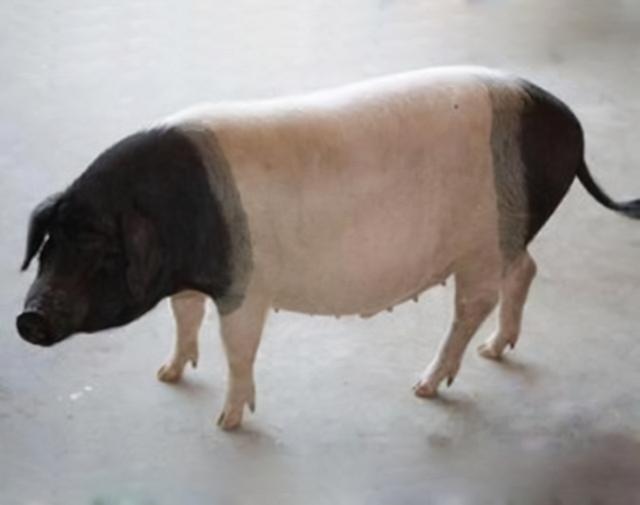化学经济专家(经济学人80-化学工业的标识)
化学经济专家(经济学人80-化学工业的标识)Last month a judge reaffirmed the verdict; the damages were trimmed but to a still-hefty $78.5m. With Bayer’s admission on November 13th that the number of similar lawsuits had reached 9 300 it is clear that the bill for compensation could reach tens of billions of dollars.American juries are well known for the generosity of their awards in civil cases. In 2002 a Californian jury fined Philip Mo
提示:点击↑上方"小芳老师"免费关注哦
品读外刊
本栏目取自外刊,版权归经济学人所有,仅供学习交流如有侵权也请后台联系。目的是为了提供阅读素材,不做他用。语言学习必须进行大量阅读,外刊是地道并紧跟当下时事的阅读材料,有利于短时间来大量积累语言素材,邀请大家一起来读,留言处写总结。
阅读方法:1. 听3-5遍以上,2. 对照文本听2遍,并查5-10个单词 3. 盲听5遍以上。4. 留言处写总结打卡!
The chemicals industry
Hazard signs
Chemicals firms are facing a regulatory and consumer backlash against some of their best-selling products
American juries are well known for the generosity of their awards in civil cases. In 2002 a Californian jury fined Philip Morris a tobacco company a whopping $28bn for causing a heavy smoker’s cancer only for the amount to be slashed to $28m by a judge on appeal. So Bayer a German chemicals giant told shareholders not to worry when a Californian jury in August ruled that Monsanto an American firm it bought two months before had to pay $289m to Dewayne Johnson a former school caretaker. Mr Johnson alleged that Roundup a glyphosate-based weedkiller had caused his terminal cancer. The jury made a judgment based on “junk science” Monsanto said. It would surely be overturned on appeal.
Last month a judge reaffirmed the verdict; the damages were trimmed but to a still-hefty $78.5m. With Bayer’s admission on November 13th that the number of similar lawsuits had reached 9 300 it is clear that the bill for compensation could reach tens of billions of dollars.
Bayer still denies any link between Roundup and cancer. Its boss Werner Baumann says it will defend the cases “with all means”. But Mr Johnson’s lawyer Robert F. Kennedy Jr is sure that he will keep winning. “We’re going to win enough of these to be a problem for Monsanto and a poison pill for Bayer.” Monsanto makes 70% of its operating profits from Roundup-related products. Bayer has lost over €27bn ($31bn) in market value since the first ruling.
The verdicts have spread disquiet through the sector. Other big pesticide-makers such as basf of Germany and DowDuPont of America have been hit almost as hard as Bayer (see chart) despite being less reliant on glyphosate. Investors are increasingly nervous of a backlash against chemicals products both in agrichemicals an industry with annual sales of $380bn and in petrochemicals which is worth around $800bn.
The past two decades increasingly look like a golden era. Between 2000 and 2015 listed chemical firms produced total returns to shareholders of 300% three times higher than firms across all sectors. Surging consumption in China helped demand for their products rise faster than gdp growth. Several rounds of mergers have reduced price competition in the industry particularly in agrichemicals. Falling trade barriers let firms move production to low-cost places.
These trends have reversed notes Florian Budde of McKinsey a consultancy. Demand from China is likely to slow because consumers are buying fancier goods such as posher cars as well as services both of which require less plastic. State-owned Chinese enterprises are muscling onto the global stage encouraged by the government’s emphasis on self-sufficiency in chemicals which exerts downward pressure on prices. Last year ChemChina bought Syngenta a Swiss agrichemicals firm for $43bn for example. It is now grabbing market share from the Western giants in Africa and Latin America. Trade wars between America and China will hit the industry’s global supply chains lifting costs.
But the sense that something deeper is wrong also troubles the industry. For the first time since the advent of industrial chemicals in the 19th century bosses are worried about the long-term prospects of some of their best-selling wares from the pesticides farmers spray on crops to the plastics used in millions of products.
The glyphosate saga symbolises one of these worries—a regulatory crackdown. Since the World Health Organisation declared in 2015 that the compound was “probably carcinogenic” regulatory pressure on its use has increased. Last year President Emmanuel Macron promised to ban it in France by 2021. Germany also announced plans to limit its use earlier this month. Health Canada a regulator is reviewing its approval because of claims from environmental groups that Monsanto secretly influenced the scientific studies it used (Monsanto has denied any such thing). Many firms are bracing themselves for the European Union to decide not to renew its licence for glyphosate after 2022. Also in regulators’ sights are hormone-disrupting chemicals such as bisphenol a found in many plastic household items.
Regulators are not the only source of concern. Consumers in many places are showing themselves ready to pay more for food involving little or no use of pesticides. Farmers in turn are switching to “precision” methods entailing more targeted use of chemicals or robots to do weeding. Bayer executives fear this shift could hit demand for its pesticides by as much as 20-30% over the next decade says Markus Mayer an analyst at Baader Bank an investment bank near Munich.
Precision farming “will change how we think about farming” says Sam Watson Jones of the Small Robot Company a British startup. It is developing three small autonomous robots—called Tom Dick and Harry—which will only feed and spray the specific plants that need it rather than dusting an entire field with chemicals from a tractor or plane. He claims that his company’s system will cut chemical use and carbon emissions by up to 95%.
Agrichemical salespeople are not alone in anticipating disruption. The petrochemicals industry is experiencing a backlash against single-use plastics a key source of demand for its product. Spencer Dale chief economist of bp an oil giant has estimated that more regulation of plastic could lower global demand for petrochemicals by around a sixth by 2040. China’s crackdown on waste will have a particularly big impact on demand for plastic. In January it banned imports of plastic rubbish from other countries; it is tightening up compliance with its rules and taxes on plastic bags.
Chemicals bosses are well aware of these pressures. Responding to them may be easiest in agrichemicals. Here at least digitisation has scope to answer consumers’ concerns about indiscriminate use of chemicals and also to generate a new stream of profits. Many firms are racing to offer digital-farming tools which can provide advice to farmers using big data satellite pictures and weather information.
The market leader in this field in America is Monsanto-Bayer’s FieldView platform produced by a subsidiary called Climate; in Europe it is basf’s Xarvio app. Some of Bayer’s executives think that however much grief Roundup causes its purchase of Monsanto was worthwhile just to get its hands on Climate’s technology which farmers already pay to use on 60m acres of fields in America. When regulation of glyphosate hits in Europe Bayer can potentially replace revenues from chemicals with revenues from data says Mike Stern the company’s head of digital farming.
But there are still doubts over whether digital husbandry can make up for the revenues that are at risk. Five years after Monsanto bought Climate for nearly $1bn it still produces only a tiny slice of overall revenues. Mr Stern says that this is because like any young tech firm it is focusing on market share rather than profit. But it is also possible that tractor-makers such as John Deere of America turn out to be better at selling digital tools for precision farming than chemical firms says Oliver Lofink of pa Consulting.
“This case is way bigger than me ” said Mr Johnson who is dying of non-Hodgkin lymphoma after the first verdict came in. He wasn’t wrong.


品读外刊合集
觉得不错,一定点赞呢!!!




